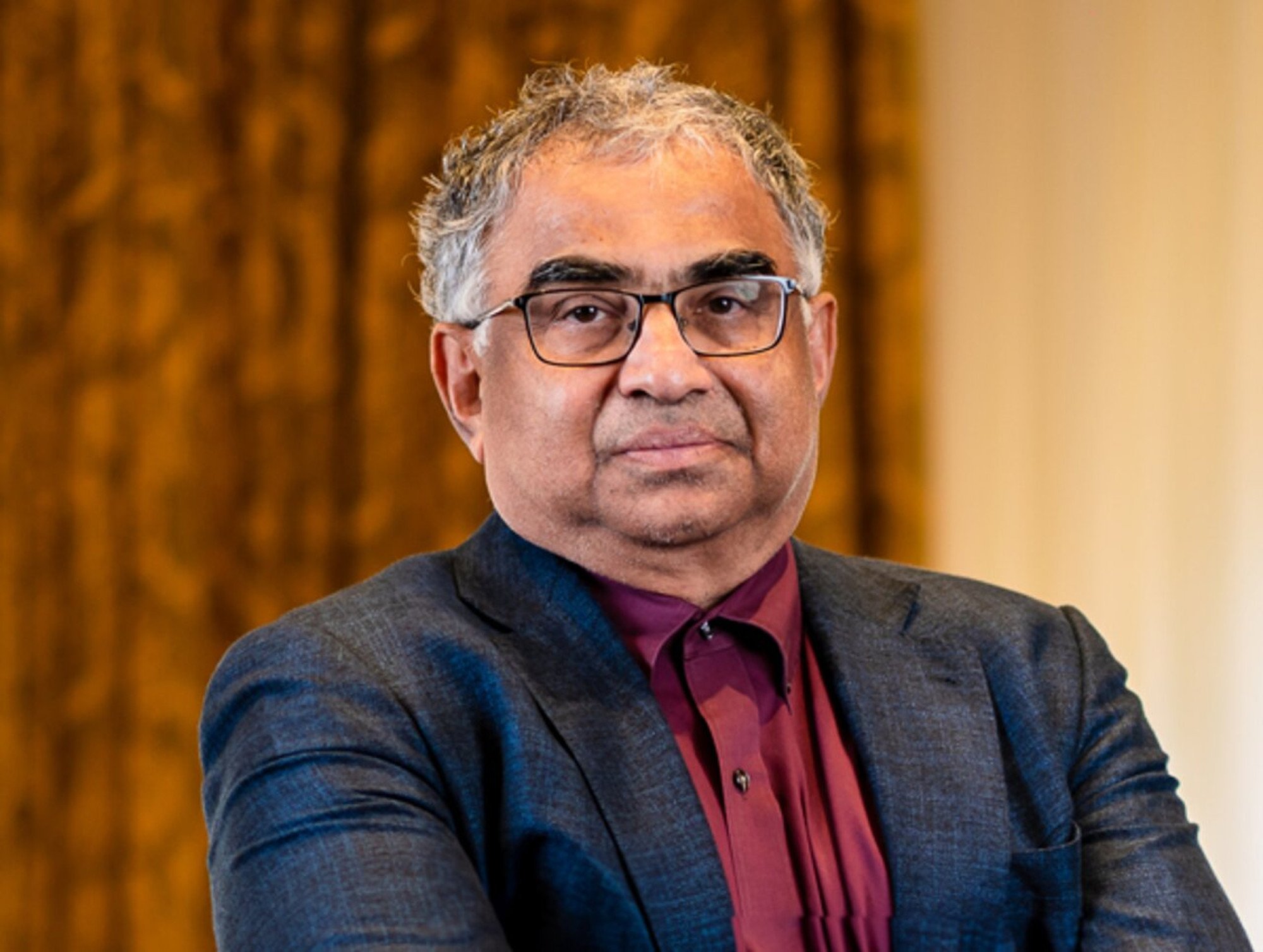US-based astronomer Shrinivas Kulkarni is a “big fan” of the Five-hundred-metre Aperture Spherical Telescope (FAST).
The professor of astronomy and planetary sciences at California Institute of Technology (Caltech), who won this year’s Shaw Prize in Astronomy, described the world’s largest and most sensitive single-dish radio telescope in China’s southwest province of Guizhou as “a terrific facility” with a global presence.
“Kudos to the Chinese government for making it a truly international facility as well as allowing other scientists to use it,” he said, adding that radio astronomers worldwide received invitations every year to propose projects on the telescope.
Do you have questions about the biggest topics and trends from around the world? Get the answers with SCMP Knowledge, our new platform of curated content with explainers, FAQs, analyses and infographics brought to you by our award-winning team.
Kulkarni was one of three Shaw prizewinners who spoke to the Post on the sidelines of the awards ceremony held in Hong Kong on Tuesday. Kulkarni received the top honour for his sustained series of fundamental discoveries in time-domain optical and radio astronomy. He has uncovered astronomical objects including millisecond pulsars, gamma-ray bursts and supernovae.
Describing FAST as the “best demonstration of soft power”, Kulkarni said findings made by international researchers using the telescope would always acknowledge China, and he hoped Beijing would continue to allow international access to encourage high-quality research.
“Astronomy is by its very nature very international because we all study the same sky,” he said. “If I make a discovery in one country, it does not matter which country it is. Science is really universal.”
Kulkarni said astronomy was one of the best sciences to go across borders because of its “harmless” nature, raising little concerns on sensitive issues such as national security.

Pointing to the example of the United States, which started attracting foreign scientists into the country after World War II, he said other countries could benefit from allowing access and promoting openness.
He said in the past two decades, China had been focused on bringing in and giving opportunities to foreign talent, which was an efficient use of resources and a powerful way to showcase soft power.
“You really want to use all the brains on this planet as efficiently as possible,” he said.
Meanwhile, US cell biologist Scott Emr, who won the Shaw Prize in Life Science and Medicine in 2021, was presented with his gold medal at the ceremony, after receiving his certificate in his home country back in 2021. Emr was recognised for his discovery of a universal apparatus in cells by which they identify the parts that have decayed and become defective, and how they recycle themselves.
The professor of molecular biology and genetics at Cornell University said China had established a culture in labs that encouraged students to strive for the best in science, something that was not widely seen in American students today who tended to join the commercial sectors.
“China is a force that no one would have predicted would be where it is today. The quality of the students and the drive that they have for doing research is something that we have not seen in the United States for 25 years,” he said.
“Most of the very talented Chinese students that I see are driving forward because they want to become the next engine of discovery,” he said. “They see only the top and they really want to try and get there. It is wonderful to have that kind of desire and passion.
“China is on this trajectory [while] the United States has plateaued off. China is just basically passing us by in the US,” he said, referring to the number of published papers and their impact.
“That is not a bad thing – we are all in this for a similar reason. But it is amazing to watch. I have had many Chinese students work in my lab and it is fun to see that kind of passion back again.”
He said that in his experience, it was more common for Chinese students to enter careers in research science, while most science students from the US preferred to go into the pharmaceutical and biotech sectors.
In the field of maths, “China is now becoming competitive, there’s no question about it”, said Peter Sarnak, winner of this year’s Shaw Prize in Mathematical Sciences.
He won for developing the arithmetic theory of thin groups and the affine sieve – work that began at a conference in the Chinese city of Hangzhou in 2005.
A question raised during that conference led Sarnak to believe the answer could be found with number theory from the 1800s. Sarnak eventually went on to execute a “sieve” that produces prime numbers in high dimensions.
This technique has a very wide array of applications including developing optimal quantum logic gates – a type of basic circuit – for quantum computing.
Sarnak, a professor of mathematics at Princeton University, said many of his PhD students had been from China where there was “tremendous talent”.
Sarnak, who was born in South Africa, moved to the US for his studies. He said the US had for many years brought the best students from around the world, including China, which it “has benefited tremendously from”.
For the advancement of mathematics as well as its applications, he said international collaboration was “extremely important”.
The Shaw Prize is a series of annual international awards given to researchers who have made marked contributions to the fields of astronomy, mathematical sciences, as well as life sciences and medicine.
More from South China Morning Post:
- China’s space ambitions face ‘huge test’ from Musk presence in Trump White House
- China’s fish out of water net longevity record, help advance human space habitation
- Award-winning mathematician Ma Xiaonan leaves Europe for China
- Will Chinese scientists make or break the uprising in academic peer-review publishing?
- Swiss university’s not-so-neutral policy to restrict applications from Chinese students
For the latest news from the South China Morning Post download our mobile app. Copyright 2024.





